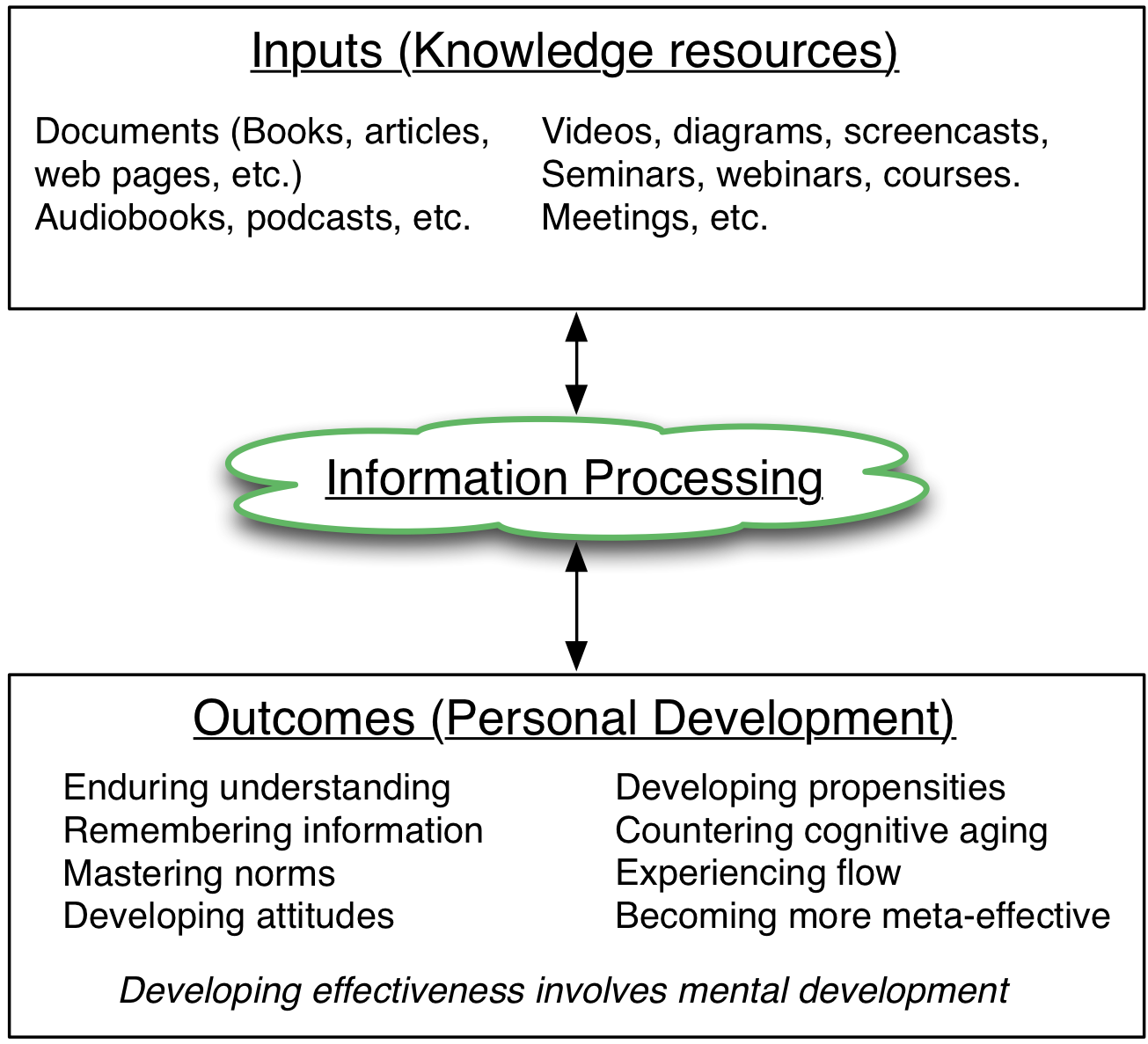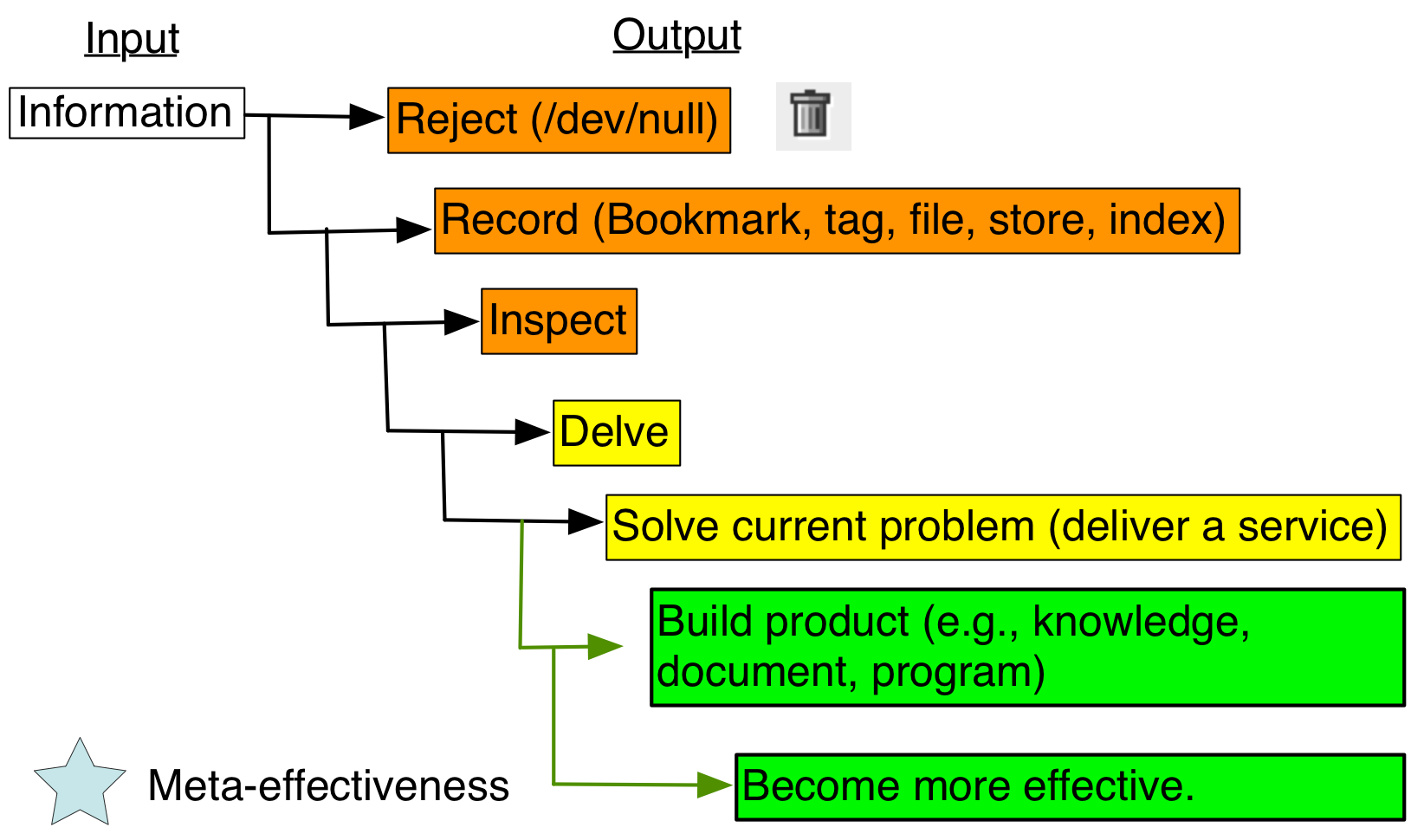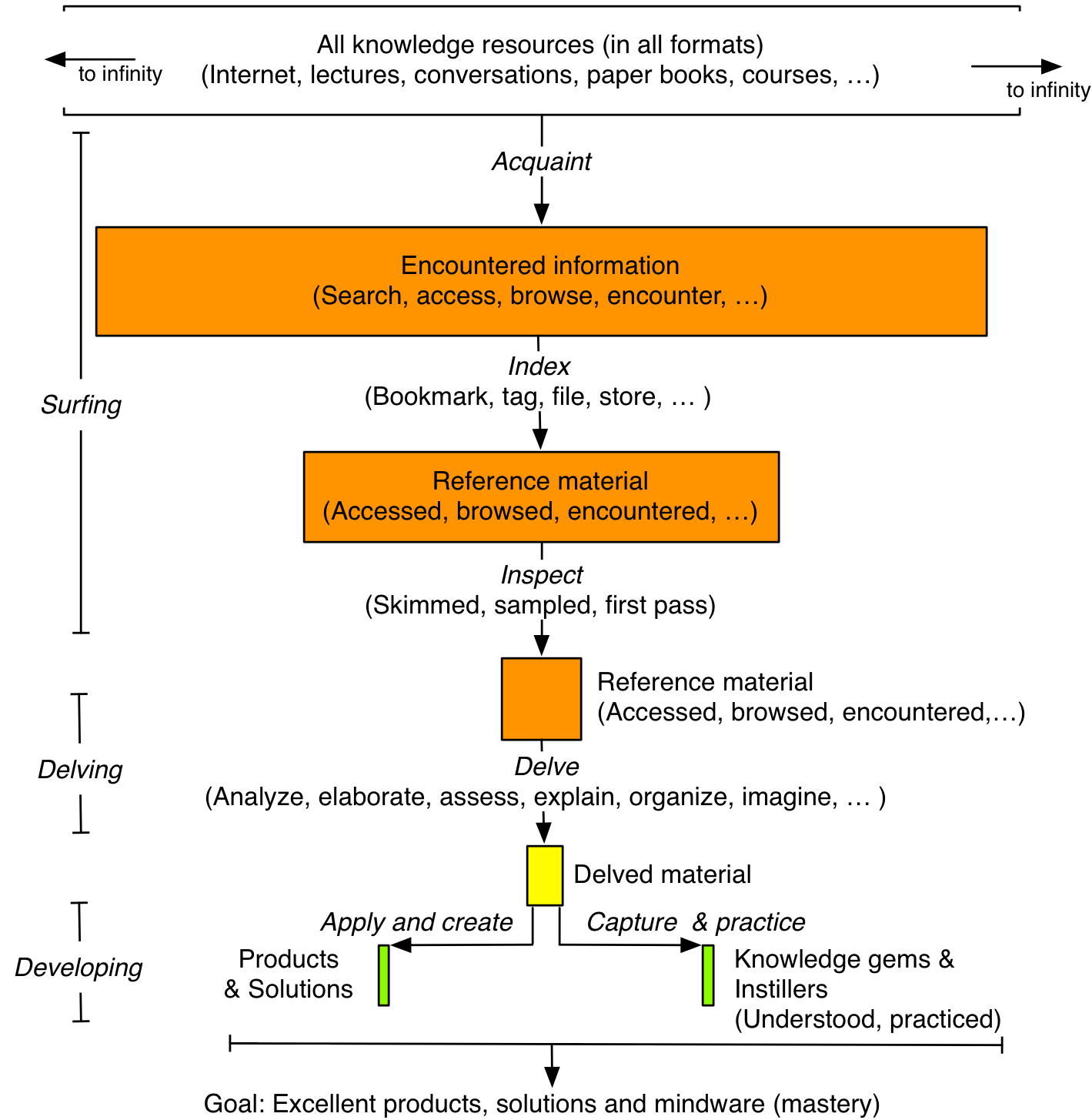In Cognitive Productivity, Luc P. Beaudoin discussed at length the problems of, and solutions for, using expository and practical knowledge resources (non-fiction) to become profoundly effective.
The following figures summarize this process:

Figure 1.1 in Cognitive Productivity: Processing knowledge for effectiveness

Figure 2.1 in Cognitive Productivity: Uses of Information

Figure 9.1 in Cognitive Productivity: Levels of Information Processing
But why stop with factual and practical sources of information? Surely, we can also develop ourselves with the art of others. And when I say “art” in this context, I mean all kinds of art:
- Fiction,
- song,
- classical music, and other instrumental music,
- visual arts / fine arts,
- and more…
We teach art from kindergarten to university. This we do not only to help students appreciate art, but also hoping to help them improve themselves with art.
Here at CogZest we are not primarily concerned with formal education, but the self-directed learning of adult knowledge workers. We’re interested in understanding and helping bright, intellectually engaged (“effectant”) people. CogZest stands for cognitive enthusiasm.
Now, it is hard enough to motivate ourselves to learn from non-fiction — witness how easy it is unwittingly to process science merely for ephemeral entertainment. Who would want to “get into the groove” of learning from art? Isn’t art meant simply to be experienced… to be enjoyed? Isn’t it the case, as expertise expert K. Anders Ericsson has often argued, that expert learning is painful?
Our conjecture is that not only can people learn from art, but that by engaging more systematically with the art of others they will derive more enjoyment:
- of the art they are currently processing,
- of the art they will process in the future, and
- in their lives, even outside the realm of art.
The objective of this project is to explore this conjecture.
Note that this project is not directly aimed at using art to become a better artist. Nor are we primarily concerned with art therapy. Our project can contribute to those aims, but our concerns are even broader.
Beaudoin is writing blog posts and a book that are part of this project. The new book in progress is Discontinuities: Limerence, Art and Mind.
Related Readings
There is little research on factual/practical “meta-effectiveness”, which is why, in Cognitive Productivity, Beaudoin drew from multiple basic sources in developing a new framework. Alas, there is even less research on adult self-directed learning from the art of others. So at this stage, this project is largely a research project. Still there are several sources we can draw from, such as the following:
- Posts tagged with art on our blog,
- Various books by Patrick Colm Hogan,
- Beaudoin, L. P. (2015), Cognitive Productivity: Using Knowledge to Become Profoundly Effective. BC: CogZest.
- Beaudoin, L.P. (Ed., manuscript in preparation). Discontinuities: Limerence, Art and Mind. We expect to publish the first version of this book on Leanpub in 2017.
- Boyd, B. (2009). The origin of stories: Evolution, cognition, and fiction. Harvard University Press.
- Fletcher, A. (2021) Wonderworks: The 25 Most Powerful Inventions in the History of Literature by Angus Fletcher
- Gottschall, J. (2012). The story telling animal: How stories make us human. Houghton Mifflin Harcourt.
- Oatley, K. (1992). Best laid schemes: The psychology of emotions. Cambridge, UK: Cambridge University Press.
- Oatley, K. (2011). Such stuff as dreams: The psychology of fiction.
- onfiction.ca,
